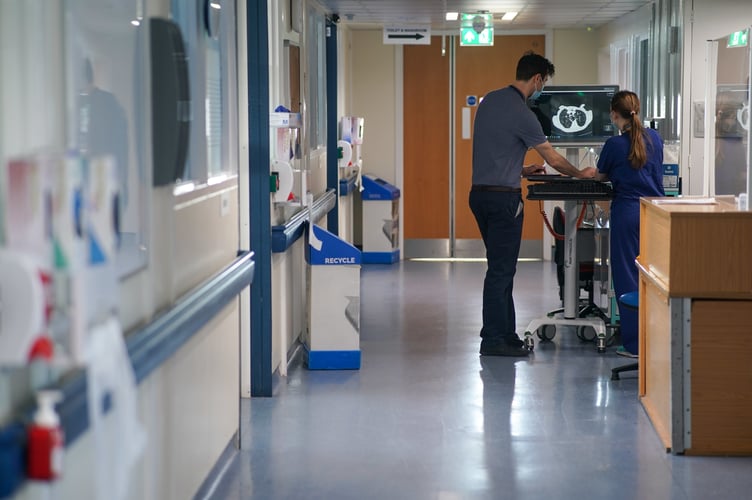Hundreds of patients were waiting for routine treatment at the Solent Trust in April, new figures show.
With the overall NHS waiting list in England growing for the first time in seven months, the Royal College of Nursing said “there will be no place to hide for the next government” when it comes to bringing the figures down.
NHS England figures show 215 patients were waiting for non-urgent elective operations or treatment at Solent NHS Trust at the end of April – down from 269 in March, and 1,423 in April 2023.
None of those had been waiting for longer than a year.
The median waiting time from referral at an NHS Trust to treatment at the Solent Trust was three weeks at the end of April – down from four weeks in March.
Nationally, 7.57 million people were waiting to start treatment at the end of April. This was up slightly from 7.54 million at the end of March and the first time the NHS waiting list has risen in seven months.
Patricia Marquis, executive director of the Royal College of Nursing, said: “Excuses, vague promises and unambitious levels of investment will not get patients the care they need.
“Politicians with their eyes on Number 10 need to wake up to that fact.”
Saffron Cordery, deputy chief executive of NHS Providers, said: “Trust leaders and their teams are working flat out to ensure no patient waits longer than they need to receive care, but this increasingly feels like an uphill battle.”
Separate figures show 1.6 million patients in England were waiting for a key diagnostic test in April – the same as in March.
At the Solent Trust, 833 patients were waiting for one of two standard tests, such as Cardiology - Echocardiography, or Magnetic Resonance Imaging at this time.
Of them, 505 (61%) had been waiting for at least six weeks.
Other figures show cancer patients across England are not being seen quickly enough.
The NHS states 85% of cancer patients with an urgent referral should start treatment within 62 days.
But NHS England data shows just 67% of cancer patients urgently referred nationally began treatment within two months of their referral.
That was down from 69% in March.
Mairaid McMahon, policy manager at Macmillan Cancer Support, said: “Despite the tireless efforts of NHS staff, people with cancer are being failed by a healthcare system that is not being given the resources it needs to support them.
She added a long-term strategy for the cancer care system must be prioritised, “so that diagnosis is made early, treatment starts quickly, and support is on hand”.
During a Sky News interview on Wednesday, the Prime Minister admitted: “We’ve not made as much progress on cutting waiting lists as I would have liked.”
Daisy Cooper, health spokesperson for the Liberal Democrats, called on Mr Sunak “to apologise to the public for his failure to get NHS waiting lists down instead of ducking responsibility”.
Sir Keir Starmer has vowed a Labour government would bring down waiting lists by creating 40,000 new appointments per week.
Shadow health secretary Wes Streeting said: “This has blown a hole in Rishi Sunak’s claim that the NHS has turned a corner.
“He promised to cut waiting lists, but they are 350,000 longer today than when he became Prime Minister.
“He can’t blame NHS staff – there were no strikes last month yet waiting lists still rose. The blame lies solely with the Conservatives.”




